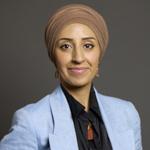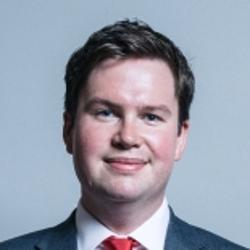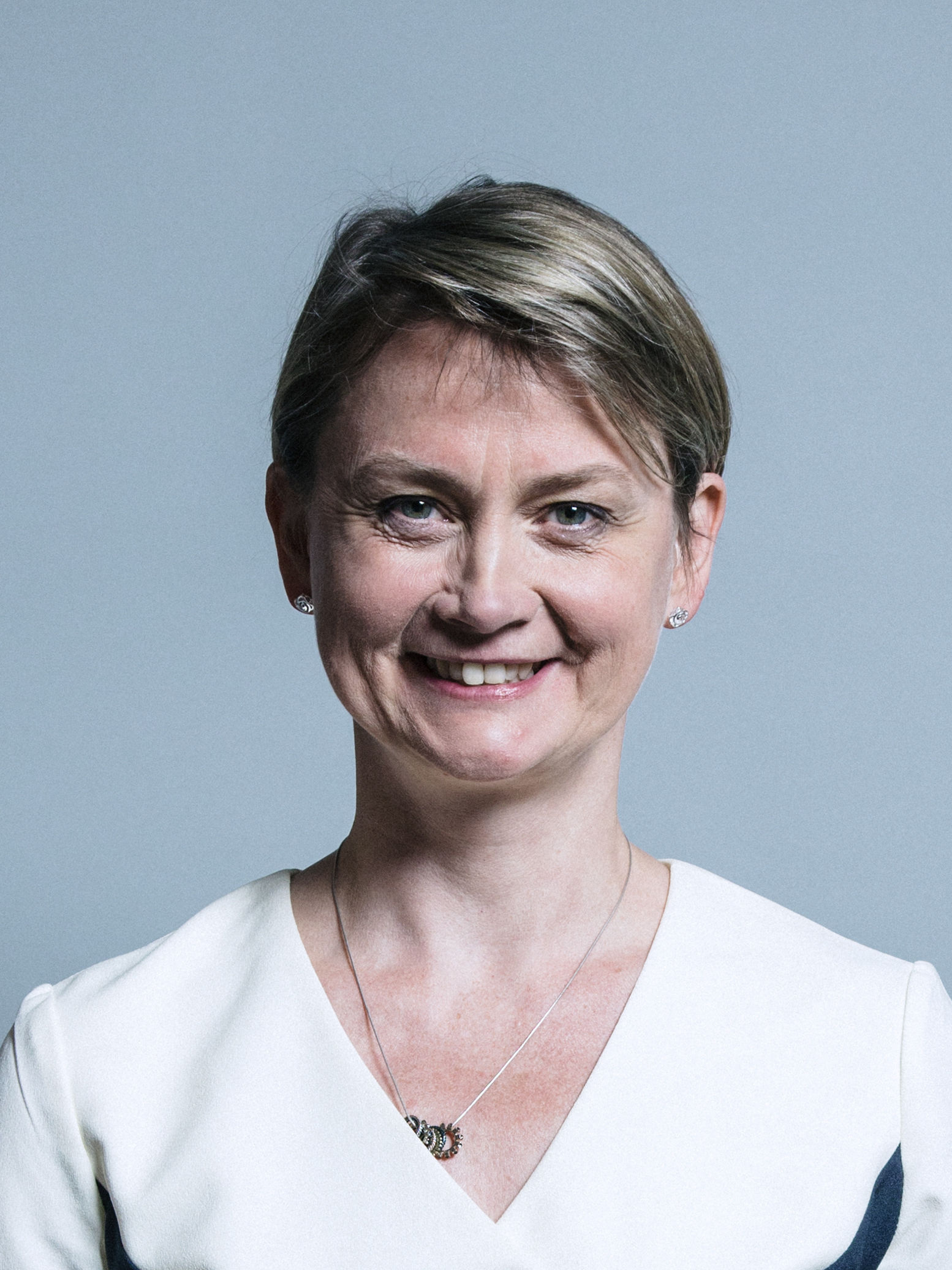Foreign, Commonwealth & Development Office
We pursue our national interests and project the UK as a force for good in the world. We promote the interests of British citizens, safeguard the UK’s security, defend our values, reduce poverty and tackle global challenges with our international partners.
Shadow Ministers / Spokeperson
Liberal Democrat
Lord Purvis of Tweed (LD - Life peer)Liberal Democrat Lords Spokesperson (Foreign and Commonwealth Affairs)
Calum Miller (LD - Bicester and Woodstock)
Liberal Democrat Spokesperson (Foreign Affairs)
Conservative
Priti Patel (Con - Witham)Shadow Secretary of State for Foreign, Commonwealth and Development Affairs
Green Party
Ellie Chowns (Green - North Herefordshire)Green Spokesperson (Foreign Affairs)
Junior Shadow Ministers / Deputy Spokesperson
Conservative
Lord Callanan (Con - Life peer)Shadow Minister (Foreign, Commonwealth and Development Office)
Wendy Morton (Con - Aldridge-Brownhills)
Shadow Minister (Foreign, Commonwealth and Development Office)
Ministers of State
Stephen Doughty (LAB - Cardiff South and Penarth)Minister of State (Foreign, Commonwealth and Development Office)
Parliamentary Under-Secretaries of State
Lord Collins of Highbury (Lab - Life peer)Parliamentary Under-Secretary (Foreign, Commonwealth and Development Office)
Hamish Falconer (Lab - Lincoln)
Parliamentary Under-Secretary (Foreign, Commonwealth and Development Office)
Seema Malhotra (LAB - Feltham and Heston)
Parliamentary Under-Secretary (Foreign, Commonwealth and Development Office)
Chris Elmore (Lab - Bridgend)
Parliamentary Under-Secretary (Foreign, Commonwealth and Development Office)
09:30
Although China is the UK’s fifth largest trading partner, the UK Government has, in recent years, described China as an …
To ask the Secretary of State for Foreign, Commonwealth and Development Affairs, what plans does the UK Government have to …
This Order approves the making of payments on behalf of the Government of the United Kingdom to the Caribbean Development …
A Bill to make provision for and in connection with the implementation by the United Kingdom of the Agreement under …
13:59
News and Communications
Foreign, Commonwealth & Development Office Commons Appearances
Oral Answers to Questions is a regularly scheduled appearance where the Secretary of State and junior minister will answer at the Dispatch Box questions from backbench MPs
Other Commons Chamber appearances can be:- Urgent Questions where the Speaker has selected a question to which a Minister must reply that day
- Adjornment Debates a 30 minute debate attended by a Minister that concludes the day in Parliament.
- Oral Statements informing the Commons of a significant development, where backbench MP's can then question the Minister making the statement.
Westminster Hall debates are performed in response to backbench MPs or e-petitions asking for a Minister to address a detailed issue
Written Statements are made when a current event is not sufficiently significant to require an Oral Statement, but the House is required to be informed.
Most Recent Commons Appearances by Category
Bills currently before Parliament
Foreign, Commonwealth & Development Office does not have Bills currently before Parliament
Acts of Parliament created in the 2024 Parliament
A Bill to make provision for and in connection with the implementation by the United Kingdom of the Agreement under the United Nations Convention on the Law of the Sea on the Conservation and Sustainable Use of Marine Biological Diversity of Areas Beyond National Jurisdiction.
This Bill received Royal Assent on 12th February 2026 and was enacted into law.
Foreign, Commonwealth & Development Office - Secondary Legislation
Petitions
e-Petitions are administered by Parliament and allow members of the public to express support for a particular issue.
If an e-petition reaches 10,000 signatures the Government will issue a written response.
If an e-petition reaches 100,000 signatures the petition becomes eligible for a Parliamentary debate (usually Monday 4.30pm in Westminster Hall).
(26,629 in the last 7 days)
(5,176 in the last 7 days)
(249 in the last 7 days)
(144 in the last 7 days)
(26,629 in the last 7 days)
(67 in the last 7 days)
(5,176 in the last 7 days)
(11 in the last 7 days)
Petition Closed
Urgently fulfil humanitarian obligations to Gaza
Gov Responded - 8 Aug 2025 Debated on - 24 Nov 2025closed 7 months ago
Act to ensure deliverer of fuel, food, aid, life saving services etc. We think this shouldn't be dependant/on condition of Israeli facilitation as the Knesset voted against UNWRA access to Gaza. We think if military delivery of aid, airdrops, peacekeepers etc, are needed, then all be considered.
Departmental Select Committee
Foreign Affairs Committee
Commons Select Committees are a formally established cross-party group of backbench MPs tasked with holding a Government department to account.
At any time there will be number of ongoing investigations into the work of the Department, or issues which fall within the oversight of the Department. Witnesses can be summoned from within the Government and outside to assist in these inquiries.
Select Committee findings are reported to the Commons, printed, and published on the Parliament website. The government then usually has 60 days to reply to the committee's recommendations.
11 Members of the Foreign Affairs Committee

Foreign Affairs Committee Member since 11th September 2024

Foreign Affairs Committee Member since 21st October 2024

Foreign Affairs Committee Member since 21st October 2024

Foreign Affairs Committee Member since 21st October 2024

Foreign Affairs Committee Member since 21st October 2024

Foreign Affairs Committee Member since 21st October 2024

Foreign Affairs Committee Member since 28th October 2024

Foreign Affairs Committee Member since 28th October 2024

Foreign Affairs Committee Member since 16th December 2024

Foreign Affairs Committee Member since 16th December 2024

Foreign Affairs Committee Member since 27th October 2025
Foreign Affairs Committee: 17 Current Inquiries
Foreign Affairs Committee: Previous Inquiries
50 most recent Written Questions
(View all written questions)I refer the Noble Lord to the Prime Minister's statement on China and Japan on 2 February in the House of Commons, and the Private Notice Question that was debated on 2 February.
In his meeting with the Prime Minister, President Xi Jinping confirmed that all parliamentarians are free to travel to China.
This Government has been clear that China's retaliatory sanctions on UK parliamentarians and others are unwarranted and unacceptable. The lifting of restrictions for all parliamentarians is a positive step, and the Foreign, Commonwealth and Development Office is engaging with Chinese officials to get more clarity on what the latest changes mean in practice, including for non-parliamentarians sanctioned by China.
Except for the sanctions announced by the Chinese authorities in March 2021, the Government is not aware of any other UK citizens who are subject to official sanctions.
Minister of State (Development)
I refer the Noble Lord to the Prime Minister's statement on China and Japan on 2 February in the House of Commons, and the Private Notice Question that was debated on 2 February.
In his meeting with the Prime Minister, President Xi Jinping confirmed that all parliamentarians are free to travel to China.
This Government has been clear that China's retaliatory sanctions on UK parliamentarians and others are unwarranted and unacceptable. The lifting of restrictions for all parliamentarians is a positive step, and the Foreign, Commonwealth and Development Office is engaging with Chinese officials to get more clarity on what the latest changes mean in practice, including for non-parliamentarians sanctioned by China.
Except for the sanctions announced by the Chinese authorities in March 2021, the Government is not aware of any other UK citizens who are subject to official sanctions.
Minister of State (Development)
I refer the Noble Lord to the Prime Minister's statement on China and Japan on 2 February in the House of Commons, and the Private Notice Question that was debated on 2 February.
In his meeting with the Prime Minister, President Xi Jinping confirmed that all parliamentarians are free to travel to China.
This Government has been clear that China's retaliatory sanctions on UK parliamentarians and others are unwarranted and unacceptable. The lifting of restrictions for all parliamentarians is a positive step, and the Foreign, Commonwealth and Development Office is engaging with Chinese officials to get more clarity on what the latest changes mean in practice, including for non-parliamentarians sanctioned by China.
Except for the sanctions announced by the Chinese authorities in March 2021, the Government is not aware of any other UK citizens who are subject to official sanctions.
Minister of State (Development)
The human rights situation in China, including China's persecution of Uyghurs and other predominantly Muslim minorities, remains a priority for the government. We are aware of the December 2024 report and have used these findings to inform current policy.
We are committed to tackling Uyghur forced labour in UK and global supply chains. The Government has launched the responsible business conduct review to provide a neutral, objective appraisal of UK policy to tackle forced labour. It will consider the effectiveness of the UK's current regime and alternative measures to support responsible business practices across UK and global supply chains, including human rights and environmental considerations.
We raise our concerns about human rights in Xinjiang at the highest levels: last month, the Prime Minister raised our concerns about Xinjiang directly with President Xi Jinping. We continue to coordinate our efforts with other international partners to hold China to account for their human rights violations.
Minister of State (Development)
The human rights situation in China, including China's persecution of Uyghurs and other predominantly Muslim minorities, remains a priority for the government. We are aware of the December 2024 report and have used these findings to inform current policy.
We are committed to tackling Uyghur forced labour in UK and global supply chains. The Government has launched the responsible business conduct review to provide a neutral, objective appraisal of UK policy to tackle forced labour. It will consider the effectiveness of the UK's current regime and alternative measures to support responsible business practices across UK and global supply chains, including human rights and environmental considerations.
We raise our concerns about human rights in Xinjiang at the highest levels: last month, the Prime Minister raised our concerns about Xinjiang directly with President Xi Jinping. We continue to coordinate our efforts with other international partners to hold China to account for their human rights violations.
Minister of State (Development)
Since 2019, FCDO projects delivered through the Gurkha Welfare Trust have totalled £14,249,415.21, comprising £2,500,000.00 (2019), £3,287,835.23 (2020), £1,999,999.70 (2021), £1,981,792.73 (2022), £1,892,458.82 (2023), £1,408,265.60 (2024), £1,069,681.90 (2025) and £109,381.22 (2026). Over the past seven years, The Gurkha Welfare Trust has delivered two major UK‑funded programmes: the Rural Water & Sanitation Programme V (RWSP V, until 2021) and the Resilient Water, Sanitation and Hygiene and Emergency Preparedness Programme (RWEPP, up to March 2025) - providing safe, reliable water to over 53,000 people and upgrading facilities in 185 public institutions. These programmes have strengthened water security, sanitation and disaster resilience across Nepal.
Minister of State (Development)
Since 2019, FCDO projects delivered through the Gurkha Welfare Trust have totalled £14,249,415.21, comprising £2,500,000.00 (2019), £3,287,835.23 (2020), £1,999,999.70 (2021), £1,981,792.73 (2022), £1,892,458.82 (2023), £1,408,265.60 (2024), £1,069,681.90 (2025) and £109,381.22 (2026). Over the past seven years, The Gurkha Welfare Trust has delivered two major UK‑funded programmes: the Rural Water & Sanitation Programme V (RWSP V, until 2021) and the Resilient Water, Sanitation and Hygiene and Emergency Preparedness Programme (RWEPP, up to March 2025) - providing safe, reliable water to over 53,000 people and upgrading facilities in 185 public institutions. These programmes have strengthened water security, sanitation and disaster resilience across Nepal.
Minister of State (Development)
The Blue Belt Beyond the Reef Expedition (13 January-28 February) is a pioneering survey of the largely unexplored offshore waters of Anguilla, the Turks and Caicos Islands, and the Cayman Islands. A full assessment of findings will follow the conclusion of the survey and subsequent data analysis.
Minister of State (Foreign, Commonwealth and Development Office)
I refer the Rt Hon Member to the answer she was provided on 13 February in response to Question 110763.
Minister of State (Foreign, Commonwealth and Development Office)
I am aware of the report in question, and I have raised my own concerns about the imprisonment of opposition figures, pressure on civil society, and attacks on independent media directly with the Georgian Government. The UK will continues to raise those human rights issues with the Georgian authorities, and to work with international partners, including through the Organization for Security and Co-operation in Europe (OSCE), to support democratic standards and accountability.
Minister of State (Foreign, Commonwealth and Development Office)
Further to the answer the Rt Hon Member was provided on 18 June 2025 in response to Question 57626, we continue to speak to our counterparts in the Maldives on a regular basis about a range of issues. However, I would reiterate to her that the question of sovereignty over the Chagos Archipelago is a matter for the UK and Mauritius, which is why the previous government launched negotiations with Mauritius on the issue in 2022, rather than with the Maldives.
Minister of State (Foreign, Commonwealth and Development Office)
Russia must be held accountable for its illegal actions in Ukraine. The UK is a founding member of the Register of Damage and I signed the Convention to establish an International Claims Commission for Ukraine on 16 December 2025. We expect to lay the treaty before Parliament in the current parliamentary session, with further domestic steps required for ratification to follow in due course.
Minister of State (Foreign, Commonwealth and Development Office)
The UK works with partner governments to strengthen water resilience, including resilience to severe drought, and to expand access to safely managed water services. For example, through the Just Transitions for Water Security programme, we have supported developing countries to build resilience to climate change and nature loss by strengthening sustainable water management.
Through the Enhanced Water Leadership in a Changing Climate programme, we have worked with the World Bank and others to strengthen national systems and mobilise finance to improve access to water, and through the Climate Adaptation and Resilience programme, we have supported climate adaptation research, including taking action to improve understanding of and responses to water insecurity and drought.
Minister of State (Foreign, Commonwealth and Development Office)
The Government of Anguilla is responsible for Anguilla's water infrastructure, health services, environment, economic development, and representational premises. The Foreign, Commonwealth and Development Office works closely to support Anguilla, including providing £500,000 to improve Anguilla's water infrastructure this financial year, and over £4 million to support security since 2024. In total, since Hurricane Irma the UK Government has provided over £100 million in funding to Anguilla, which included the construction of new schools, health clinics, port facilities and a new ferry terminal.
Minister of State (Foreign, Commonwealth and Development Office)
The Government of Anguilla is responsible for Anguilla's water infrastructure, health services, environment, economic development, and representational premises. The Foreign, Commonwealth and Development Office works closely to support Anguilla, including providing £500,000 to improve Anguilla's water infrastructure this financial year, and over £4 million to support security since 2024. In total, since Hurricane Irma the UK Government has provided over £100 million in funding to Anguilla, which included the construction of new schools, health clinics, port facilities and a new ferry terminal.
Minister of State (Foreign, Commonwealth and Development Office)
The Government of Anguilla is responsible for Anguilla's water infrastructure, health services, environment, economic development, and representational premises. The Foreign, Commonwealth and Development Office works closely to support Anguilla, including providing £500,000 to improve Anguilla's water infrastructure this financial year, and over £4 million to support security since 2024. In total, since Hurricane Irma the UK Government has provided over £100 million in funding to Anguilla, which included the construction of new schools, health clinics, port facilities and a new ferry terminal.
Minister of State (Foreign, Commonwealth and Development Office)
The Government of Anguilla is responsible for Anguilla's water infrastructure, health services, environment, economic development, and representational premises. The Foreign, Commonwealth and Development Office works closely to support Anguilla, including providing £500,000 to improve Anguilla's water infrastructure this financial year, and over £4 million to support security since 2024. In total, since Hurricane Irma the UK Government has provided over £100 million in funding to Anguilla, which included the construction of new schools, health clinics, port facilities and a new ferry terminal.
Minister of State (Foreign, Commonwealth and Development Office)
The Government of Anguilla is responsible for Anguilla's water infrastructure, health services, environment, economic development, and representational premises. The Foreign, Commonwealth and Development Office works closely to support Anguilla, including providing £500,000 to improve Anguilla's water infrastructure this financial year, and over £4 million to support security since 2024. In total, since Hurricane Irma the UK Government has provided over £100 million in funding to Anguilla, which included the construction of new schools, health clinics, port facilities and a new ferry terminal.
Minister of State (Foreign, Commonwealth and Development Office)
The Government of Anguilla is responsible for Anguilla's water infrastructure, health services, environment, economic development, and representational premises. The Foreign, Commonwealth and Development Office works closely to support Anguilla, including providing £500,000 to improve Anguilla's water infrastructure this financial year, and over £4 million to support security since 2024. In total, since Hurricane Irma the UK Government has provided over £100 million in funding to Anguilla, which included the construction of new schools, health clinics, port facilities and a new ferry terminal.
Minister of State (Foreign, Commonwealth and Development Office)
The Government of Anguilla is responsible for Anguilla's water infrastructure, health services, environment, economic development, and representational premises. The Foreign, Commonwealth and Development Office works closely to support Anguilla, including providing £500,000 to improve Anguilla's water infrastructure this financial year, and over £4 million to support security since 2024. In total, since Hurricane Irma the UK Government has provided over £100 million in funding to Anguilla, which included the construction of new schools, health clinics, port facilities and a new ferry terminal.
Minister of State (Foreign, Commonwealth and Development Office)
The Government of Anguilla is responsible for Anguilla's water infrastructure, health services, environment, economic development, and representational premises. The Foreign, Commonwealth and Development Office works closely to support Anguilla, including providing £500,000 to improve Anguilla's water infrastructure this financial year, and over £4 million to support security since 2024. In total, since Hurricane Irma the UK Government has provided over £100 million in funding to Anguilla, which included the construction of new schools, health clinics, port facilities and a new ferry terminal.
Minister of State (Foreign, Commonwealth and Development Office)
The Government of Anguilla is responsible for Anguilla's water infrastructure, health services, environment, economic development, and representational premises. The Foreign, Commonwealth and Development Office works closely to support Anguilla, including providing £500,000 to improve Anguilla's water infrastructure this financial year, and over £4 million to support security since 2024. In total, since Hurricane Irma the UK Government has provided over £100 million in funding to Anguilla, which included the construction of new schools, health clinics, port facilities and a new ferry terminal.
Minister of State (Foreign, Commonwealth and Development Office)
The Government of Anguilla is responsible for Anguilla's water infrastructure, health services, environment, economic development, and representational premises. The Foreign, Commonwealth and Development Office works closely to support Anguilla, including providing £500,000 to improve Anguilla's water infrastructure this financial year, and over £4 million to support security since 2024. In total, since Hurricane Irma the UK Government has provided over £100 million in funding to Anguilla, which included the construction of new schools, health clinics, port facilities and a new ferry terminal.
Minister of State (Foreign, Commonwealth and Development Office)
For the reasons explained at length on previous occasions, no such discussions are required or intended. We will continue to operate the base exactly as we have done before.
Minister of State (Foreign, Commonwealth and Development Office)
I refer the Hon Member to the answer provided on 28 January in response to Question 106998.
Minister of State (Foreign, Commonwealth and Development Office)
UK Export Finance (UKEF) and the Commonwealth Enterprise and Investment Council (CWEIC) participated in the 2025 Joint Ministerial Council, as part of discussions on economic growth. Overseas Territory officials also attended UKEF's recent UK Trade and Export Forum, strengthening understanding of financing tools for tourism and wider economic projects. My officials continue to work closely with UKEF to support Overseas Territories' sustainable economic development, and with the CWEIC to expand Overseas Territories' commercial links with Commonwealth partners.
Minister of State (Foreign, Commonwealth and Development Office)
I refer the Hon. Member to the November 2025 Joint Ministerial Council Communique. Overseas Territories are being supported to define their local needs so that tailored child advocacy support can be offered.
Minister of State (Foreign, Commonwealth and Development Office)
I refer the Hon member to the answer given on 13 February to question 110763.
Minister of State (Foreign, Commonwealth and Development Office)
I refer the Hon. Member to the Government's response to the Urgent Question tabled on 12 February, the Written Ministerial Statement in the name of the Chief Secretary to the Prime Minister that same day, and Oral Statement on the 23 February which set out an update on the Government's process. We will set out further details in due course. The Government wishes to ensure that Parliament's instruction is met with the urgency and transparency that it deserves.
Parliamentary Under-Secretary (Foreign, Commonwealth and Development Office)
I refer the Hon Member to the response to Question 22931 on 16 January 2025.
Parliamentary Under-Secretary (Foreign, Commonwealth and Development Office)
I refer the Hon Member to the answer provided on 12 January in response to Question 101933.
Parliamentary Under-Secretary (Foreign, Commonwealth and Development Office)
We engage in regular dialogue with China on security matters at both official and ministerial levels. These exchanges include discussions on nuclear weapons, conducted bilaterally as well as through the P5 process, which brings together the five nuclear weapon states recognised by the Treaty on the Non-Proliferation of Nuclear Weapons (NPT) to discuss their obligations under it. We also hold an annual Counter‑Proliferation and Arms Control Dialogue with China, which covers nuclear issues. During his recent visit to Beijing, the Prime Minister raised broader issues of global stability with President Xi.
Parliamentary Under-Secretary (Foreign, Commonwealth and Development Office)
I refer the Hon Member to the answers I provided in the Urgent Question debate on 9 February.
Parliamentary Under-Secretary (Foreign, Commonwealth and Development Office)
The UK remains concerned about human rights abuses in China, including in Xinjiang, where Uyghurs and other predominantly Muslim minorities remain subject to arbitrary detention and persecution. We also condemn the use of transnational repression, including the intimidation or harassment by foreign governments of their critics overseas. We continue to raise our concerns with China at the highest levels, most recently in the Prime Minister's meeting with President Xi Jinping in January.
Parliamentary Under-Secretary (Foreign, Commonwealth and Development Office)
China's imposition of the National Security Law on Hong Kong has seen opposition stifled and dissent criminalised. Ministers have repeatedly called for the National Security Law to be repealed and for an end to the prosecution of all individuals charged under it, including Chow Hang-tung.
Parliamentary Under-Secretary (Foreign, Commonwealth and Development Office)
We remain concerned by the challenges faced by Rohingya refugees and committed to improving their situation in Bangladesh. In September, the Foreign Secretary announced £27 million in new funding for these efforts, bringing the UK's total support to £447 million. This includes assistance to help refugees access to essential services. In December, the UK also announced joint funding with Saudi Arabia and Qatar of £6.96 million to support the response to the Rohingya crisis.
Parliamentary Under-Secretary (Foreign, Commonwealth and Development Office)
We remain concerned by the challenges faced by Rohingya refugees and committed to improving their situation in Bangladesh. In September, the Foreign Secretary announced £27 million in new funding for these efforts, bringing the UK's total support to £447 million. This includes assistance to help refugees access to essential services. In December, the UK also announced joint funding with Saudi Arabia and Qatar of £6.96 million to support the response to the Rohingya crisis.
Parliamentary Under-Secretary (Foreign, Commonwealth and Development Office)
We remain concerned by the challenges faced by Rohingya refugees and committed to improving their situation in Bangladesh. In September, the Foreign Secretary announced £27 million in new funding for these efforts, bringing the UK's total support to £447 million. This includes assistance to help refugees access to essential services. In December, the UK also announced joint funding with Saudi Arabia and Qatar of £6.96 million to support the response to the Rohingya crisis.
Parliamentary Under-Secretary (Foreign, Commonwealth and Development Office)
We remain concerned by the challenges faced by Rohingya refugees and committed to improving their situation in Bangladesh. In September, the Foreign Secretary announced £27 million in new funding for these efforts, bringing the UK's total support to £447 million. This includes assistance to help refugees access to essential services. In December, the UK also announced joint funding with Saudi Arabia and Qatar of £6.96 million to support the response to the Rohingya crisis.
Parliamentary Under-Secretary (Foreign, Commonwealth and Development Office)
We remain concerned by the challenges faced by Rohingya refugees and committed to improving their situation in Bangladesh. In September, the Foreign Secretary announced £27 million in new funding for these efforts, bringing the UK's total support to £447 million. This includes assistance to help refugees access to essential services. In December, the UK also announced joint funding with Saudi Arabia and Qatar of £6.96 million to support the response to the Rohingya crisis.
Parliamentary Under-Secretary (Foreign, Commonwealth and Development Office)
I refer the Hon Member to the answer provided on 27 February in response to Question 110419.
Parliamentary Under-Secretary (Foreign, Commonwealth and Development Office)
The situation remains as set out in the previous answer. We will report any updates to the House in the normal way in due course.
Parliamentary Under-Secretary (Foreign, Commonwealth and Development Office)
As is normal practice, we do not publish details of unsuccessful applicants, or potential candidates, for senior roles in the diplomatic service or elsewhere in government.
Parliamentary Under-Secretary (Foreign, Commonwealth and Development Office)
The requested information is not centrally collated by the Foreign, Commonwealth and Development Office, and could only be obtained at disproportionate cost.
Parliamentary Under-Secretary (Foreign, Commonwealth and Development Office)
I refer the Rt. Hon Member to the appearances made before the Foreign Affairs Committee by the Foreign Secretary on 16 December 2025 and by the Permanent Under Secretary to the Foreign, Commonwealth and Development Office on 3 November 2025.
Parliamentary Under-Secretary (Foreign, Commonwealth and Development Office)
I refer the Hon. Member to the Government's response to the Urgent Question tabled on 12 February, the Written Ministerial Statement in the name of the Chief Secretary to the Prime Minister that same day, and Oral Statement on the 23 February which set out an update on the Government's process. We will set out further details in due course. The Government wishes to ensure that Parliament's instruction is met with the urgency and transparency that it deserves.
Parliamentary Under-Secretary (Foreign, Commonwealth and Development Office)
I refer the Hon. Member to the Government's response to the Urgent Question tabled on 12 February, the Written Ministerial Statement in the name of the Chief Secretary to the Prime Minister that same day, and Oral Statement on the 23 February which set out an update on the Government's process. We will set out further details in due course. The Government wishes to ensure that Parliament's instruction is met with the urgency and transparency that it deserves.
Parliamentary Under-Secretary (Foreign, Commonwealth and Development Office)
I refer the Hon. Member to the Government's response to the Urgent Question tabled on 12 February, the Written Ministerial Statement in the name of the Chief Secretary to the Prime Minister that same day, and Oral Statement on the 23 February which set out an update on the Government's process. We will set out further details in due course. The Government wishes to ensure that Parliament's instruction is met with the urgency and transparency that it deserves.
Parliamentary Under-Secretary (Foreign, Commonwealth and Development Office)
As was the case under successive administrations, the Government does not comment on security matters.
Parliamentary Under-Secretary (Foreign, Commonwealth and Development Office)
